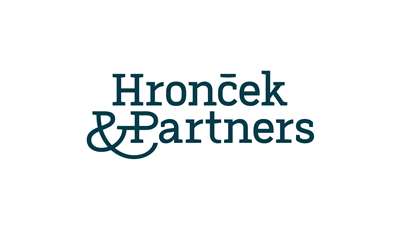
Pursuant to Section 6a(1)(b) of Act No. 297/2008 Coll. on the protection against the legalisation of proceeds from criminal activity and on the protection against the financing of terrorism and on amendments to certain acts (hereinafter referred to as the "Act on the protection against the legalisation of proceeds from criminal activity and on the protection against the financing of terrorism"): "The ultimate beneficiary is any natural person who actually controls or supervises a legal entity, a natural person – entrepreneur or an association of assets, and any natural person for whose benefit these entities carry out their activities or business; ultimate beneficiaries include, in particular: In the case of a natural person who is an entrepreneur, a natural person who is entitled to at least 25% of the economic benefits of the business of the natural person who is an entrepreneur or of their other activities." An enterprise as such within the meaning of Section 143 et seq. of the Civil Code is not part of the joint property of spouses (hereinafter referred to as "BSM"), because the assets included in the enterprise of only one of the spouses belong to his or her separate property. However, according to the legal regulation of BSM, income from business belongs to this joint ownership, since within the meaning of Section 147(1) of the Civil Code: "A claim of a creditor of only one of the spouses that arose during the marriage may be satisfied in the enforcement of a decision also from the property belonging to the joint property of spouses." In this case, therefore, the entrepreneur spouse is liable for business obligations with all his or her property, including property belonging to BSM. In view of the above, it can be concluded that the spouse of an entrepreneur participates in the economic profits from the business, i.e. is entitled to at least 25% of the economic benefits from the business of a natural person – entrepreneur or from their other activities.
Based on the above, the spouse of a natural person or a natural person who is an entrepreneur who is registered in the RPVS may be considered the ultimate beneficiary of the natural person or natural person who is an entrepreneur who is registered in the RPVS, whereby the above procedure applies exclusively to natural persons who are partners of the public sector, but not legal entities that are partners of the public sector (i.e., spouses of the ultimate beneficiaries of a legal entity that is a partner of the public sector are not entered in the register as ultimate beneficiaries).
OPINION OF THE MINISTRY OF JUSTICE OF THE SLOVAK REPUBLIC:
With regard to the status of a spouse as a final beneficiary, the Ministry of Justice has taken a consistent interpretative position: Income arising from civil law provisions, such as maintenance obligations or joint ownership of property by spouses (hereinafter referred to as "BSM"), constitute a "statutory presumption" arising from the conclusion of marriage (unless, of course, this institution is modified by agreement between the spouses). The performance that a spouse receives from the existence of BSM does not constitute economic benefit from business activities, and therefore it is not possible to speak of a final beneficiary within the meaning of Section 6a of Act No. 297/2008 Coll. on protection against the legalization of proceeds from criminal activity and on protection against terrorist financing and on amendments to certain laws, as amended (hereinafter referred to as "Act No. 297/2008 Z. z."). A different situation would arise if the BSM were divided pursuant to Section 148a(2) of Act No. 40/1964 Coll. Civil Code, as amended, i.e. in connection with the commencement of business by one of the spouses - a person entered in the register; the other spouse would be considered the ultimate beneficiary if he or she acquired property from the business activities of the first spouse without adequate consideration. Similarly, a spouse would be considered the ultimate beneficiary if they had a certain type of "economic agreement" with the other spouse, e.g. a pledge agreement for a business share or if the business share was directly owned by the spouse, in which case they would personally participate in the economic benefits of the business.
